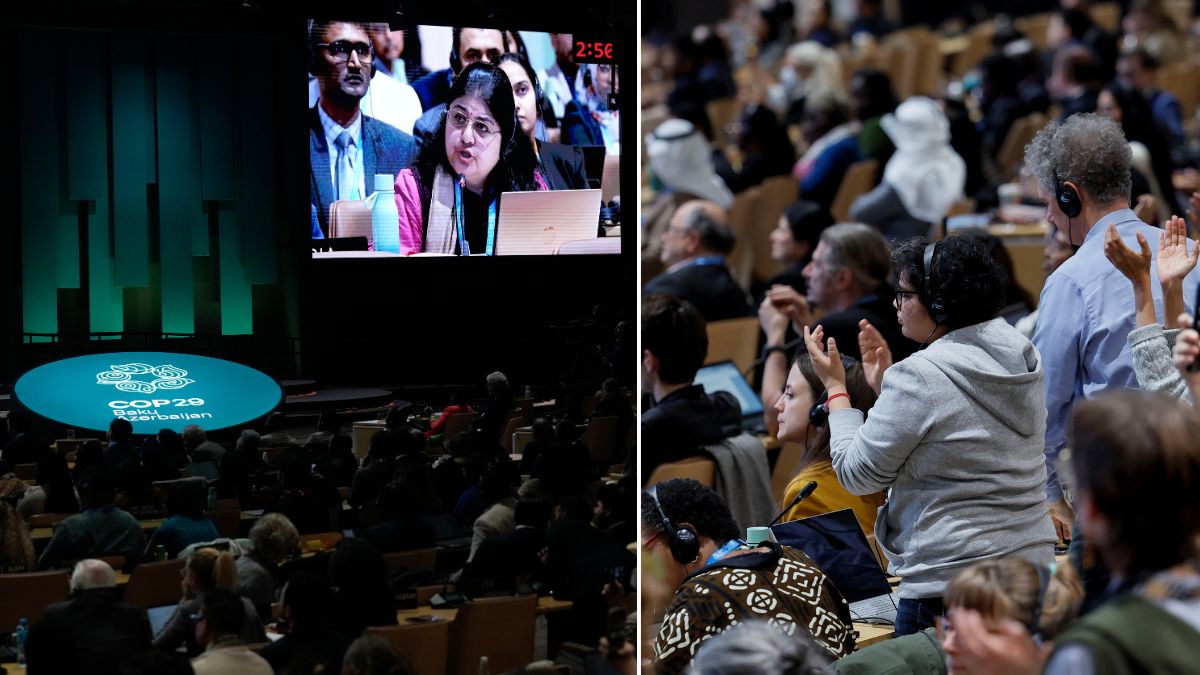The world's richest nations on Sunday reached an agreement at COP29 in Azerbaijan capital Baku to provide $300 billion to poorer countries to gear up for climate change. However, India and several other developing countries said the funds are insufficient. Economists believe that at least $1.3 trillion is needed to help the vulnerable nations tackle the climate crisis.
Today marked a historic day: Three major achievements were reached by the COP29 Presidency!#COP29 #COP29Azerbaijan #BakuBreakthrough pic.twitter.com/NgY1UMUMaf
— COP29 Azerbaijan (@COP29_AZ) November 24, 2024
Indian delegate Chandni Raina called the $300 billion a "paltry sum", saying the new deal is "nothing more than an optical illusion". She pointed out that the agreement failed to address the enormity of the challenges faced by many countries.
She said the agreed funding is incompatible with the principle of Common But Differentiated Responsibilities (CBDR) and equity.
India makes history with a livid statement objecting to the adoption of the climate finance outcome at @COP29_AZ 🔥
— Avantika Goswami (@aygoswami) November 23, 2024
Legal ramifications of their objection unclear pic.twitter.com/0MxsIMNqdH
A fiery speech by India's Environment Secretary Leelan Nandan also highlighted the frustration among developing nations. She said India cannot accept the deal and the propose goal will not solve anything for the country.
Nandan added that the deal is not conducive to climate action that is necessary for India's survival.
Marshall Islands envoy Tina Stege slammed the negotiations as the "very worst of political opportunism". Nigeria said the funding was a joke, while Malawi and Bolivia also backed India.
The deal was reached after a fornight of talks that saw boycotting and disagreements and the negotiations went 30 hours beyond the deadline. The developing nations boycotted meetings and threatened withdrawl unless rich nations agreed to give more funds. However, they later allowed the passage of the deal.
The agreement requires rich nations like the US and other rich countries to provide $300 billion every year by 2035. But developing nations want wealthy nations to pledge a bigger pie of the fund. They also advocated the funding to be given in the form of grants instead of loans to avoid debt traps.
The talks also could not reach an agreement to "transition away from fossil fuels".



